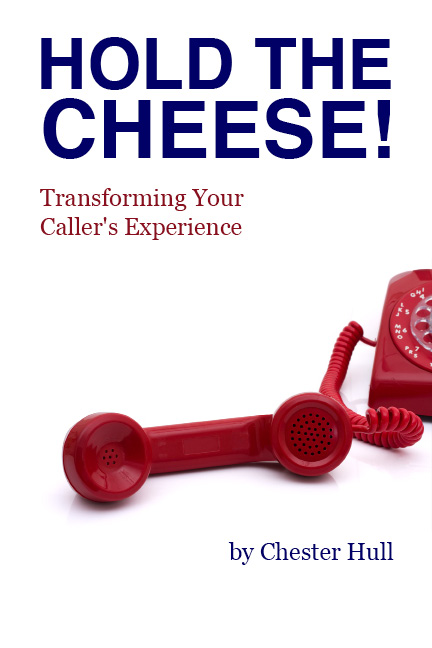 You’ve just called the Wagon Yard, a furnishings and collectibles store in Texas. You’re calling about the 54″ cherry roll-top computer desk you heard that it carried. That would look great in your office! And while you are transferred to the furniture department, you hear this:
You’ve just called the Wagon Yard, a furnishings and collectibles store in Texas. You’re calling about the 54″ cherry roll-top computer desk you heard that it carried. That would look great in your office! And while you are transferred to the furniture department, you hear this:
Now you’re interested in more than just a roll-top desk! And why is that?
Because a compelling, relevant On-Hold message moves the “Who Cares” meter!
I’m sure you’ve heard or seen the opposite in an ad…maybe even today. “We’ve been in business since….” Really?
Who cares?
Now you’re probably saying, “But Chester, I don’t want to do business with a fresh, young, inexperienced company!” Really? Like Google? Facebook? Twitter? These are all companies that developed huge (did I say huge?) customer bases, and they weren’t built around how long they had been in business.
Let’s break this point down a little more. When a company leads with how long it has been in business, what is it really trying to say?
- Its experience makes it the expert.
- You will be able to count on warranty support.
- You won’t be left “holding the bag” if something goes wrong.
I’m sure we could come up with a lot more things here.
Any one of those would be more compelling…more interesting to you and me as customers, than, “We’ve been in business since…”
Why is that? It’s because of the difference between facts and emotion.
Facts say you’ve been in business for fifty years.
Emotions tell me that I want to buy from someone who is an expert.
Phrases like “family-owned,” “superior service,” and “exceptional value” don’t create a strong emotional reason to do business with your company. Don’t get me wrong; it’s nice information. But it’s not the “bottom-line food-truth”
about your business that is going to get your visitors salivating for what you have to offer.
Draw me into the world of emotions, and I am more likely to find interest in your product or service. And the best way to engage the emotional side of the brain is to tell a story.
Tell me a story…make me a star.
Tell your customer a story, with him as the star, and you will instantly engage his emotional power. (Take a moment to go back and read the first paragraph of this section again. Did you notice it was about you?)
When we tell stories, we engage the emotion rather than the intellect. Emotion and intellect are not connected! Intellectual ads are about inarguable facts. It’s about “New!” (when it really is new!)
But emotional ads are about what the customer already knows or feels. They connect with what we already believe to be real, while adding a new perspective.
We do what feels right; then we use our intellectual logic to justify our emotional decision.
So the next time you’re thinking about what callers hear while On-Hold, take out the intellect, and put in the emotion. It will make a powerful difference!

 Facebook
Facebook LinkedIn
LinkedIn Twitter
Twitter



